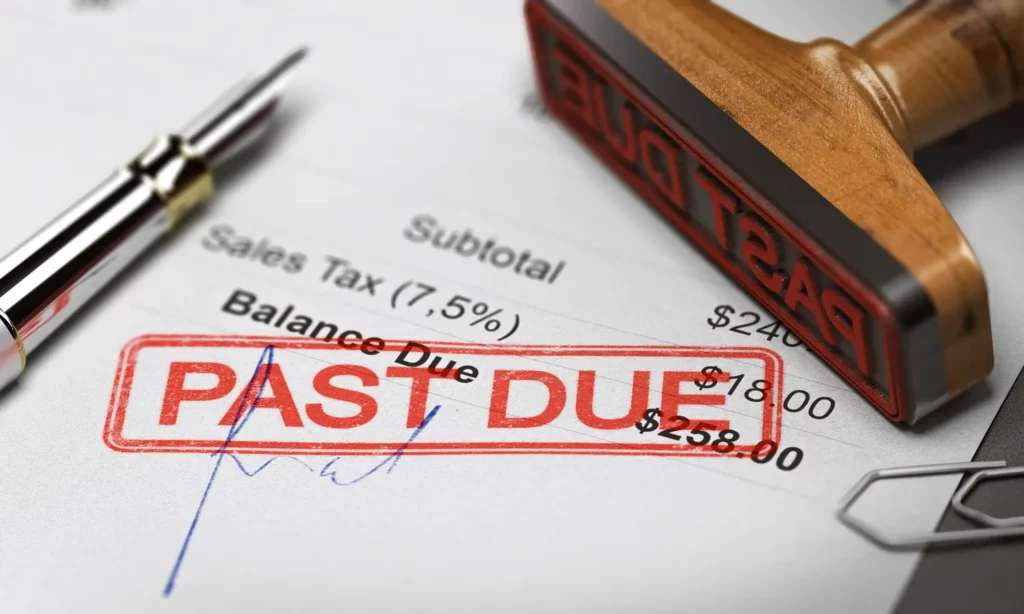
Sell Your House With a Private Lender Loan Made Simple
Easily sell your property even with an existing private lender loan—get cash fast, avoid complications, and move forward on your terms.
Understanding How Private Lender Loans Work
Not every homeowner finances their house through a traditional mortgage. In Florida, many property owners—particularly investors or those with credit challenges—borrow from private lenders instead of banks. These loans are often referred to as private money loans or hard money loans, and while they can provide quick funding, they usually come with higher interest rates, shorter repayment periods, and balloon payments.
Private loans typically come with terms of 12 to 36 months, meaning homeowners might feel pressured to sell before the loan’s maturity to avoid default or foreclosure. Unlike traditional mortgages, which span 30 years, private loans often require full repayment within a few years. This adds stress to homeowners who may not have the financial means to pay off the loan and need to sell quickly.
The good news is that you can sell a property with a private loan still in place. However, the process, costs, and timeline may differ from selling a home with a standard mortgage.
Why Homeowners Sell While a Private Loan Is Still Active
There are several reasons homeowners might decide to sell while a private loan is still in place. Here are the most common scenarios:
- High interest rates eating into finances
Private loans often come with double-digit interest rates, making monthly payments much higher than those of traditional mortgages, which can lead to financial strain. - Short-term loans reaching maturity
Private lenders may require a balloon payment at the end of the loan. If the homeowner can’t refinance or pay off the full loan, selling might be the only option to avoid foreclosure. - Job relocation or lifestyle changes
Even without financial pressure from the loan itself, life changes such as job transfers, divorce, or downsizing can lead homeowners to sell their property. - Investment strategy shift
Real estate investors often use private loans to purchase distressed properties, but if the investment doesn’t work out or liquidity is needed, selling the property early can make sense. - Avoiding foreclosure
If payments are missed, private lenders can foreclose on the property. Selling the property may be a way to protect your equity and prevent further damage to your credit.
In all of these cases, the main concern remains the same: settling the private loan in full when the property is sold.
Steps Involved in Selling a House With a Private Loan
Although selling a home with a private loan is similar to selling one with a traditional mortgage, there are some key differences. Here’s how the process typically works:
- Contact the lender for a payoff statement
The payoff amount from the lender will include the remaining loan balance, plus any interest accrued up to the payoff date, as well as any prepayment penalties or fees. - Calculate your equity
Equity is the difference between the market value of your home and the remaining loan balance. By subtracting the loan payoff from the home’s market value, you can determine how much you’ll walk away with after the sale. - Choose how to sell
You have several options when selling your home, including listing with a realtor, refinancing into a conventional mortgage, or selling directly to a cash buyer. - Handle title and lien release
At closing, the title company will ensure the private lender is paid and releases their lien on the property. Only once the lien is released can the buyer take full ownership.
While this process sounds straightforward, complications may arise if equity is low, deadlines are tight, or the lender is uncooperative.
For more on the title process in real estate, check out this guide to closing a real estate deal.
Challenges Homeowners Often Face

Selling a house with a private loan in Florida isn’t always a smooth process. Here are some challenges homeowners may encounter:
- Low or negative equity
If the home’s value is lower than the remaining loan balance, homeowners may not have enough equity to sell through traditional methods, or may need to bring cash to the table. - Tight timelines
Private loans usually have short repayment terms, and if a balloon payment is due soon, the seller might not have enough time for a long listing process. - High fees or penalties
Some private loans include hefty prepayment penalties, which can significantly cut into your sale proceeds and create added pressure to sell quickly. - Uncooperative lenders
Private lenders may not be as flexible as traditional banks, and some may delay issuing a payoff statement or even attempt to foreclose if payments are late. - Property condition
Homes bought with private money are often in poor condition, requiring repairs before listing. If repairs are not completed, selling the home on the open market can be difficult.
Due to these challenges, many homeowners consider alternatives to traditional real estate transactions.
Options for Selling With a Private Loan Still Attached
There’s no one-size-fits-all solution when it comes to selling a house with a private loan. The best option depends on the homeowner’s specific situation, including loan terms, equity, and time constraints. Here are a few common selling methods:
- Listing with a real estate agent
Selling through a realtor is the traditional method, but it can take 60–120 days to find a buyer and close. If you’re facing a looming deadline, this may not be a feasible option. - Refinancing before selling
If your credit has improved or if you have equity, you might be able to refinance into a conventional mortgage, providing more time to list and sell the home without the pressure of a looming loan deadline. - “Subject-to” or loan assumption
In some cases, a buyer may agree to take over your private loan payments. This requires lender approval, and it’s a relatively rare occurrence. However, it can work if the loan terms are favorable. - Direct sale to a cash buyer
Selling to a cash buyer allows you to close quickly without the hassle of showings or repairs. A direct buyer can also handle the payoff of your private loan, ensuring that the lender is paid off and the lien is released.
How a Cash Buyer Helps Sellers With Private Loans

One of the main challenges homeowners face when selling with a private loan is the tight timeline. Traditional buyers typically rely on financing that can take weeks or months, but private lenders often require repayment much sooner. This is where working with a cash buyer can offer significant advantages.
- We buy as-is. No repairs, no inspections, no cleaning.
- We pay cash. No waiting for bank approvals or financing contingencies.
- We close fast. If your lender’s deadline is coming up, we can close in days, not months.
- We handle the payoff. The title company works directly with your lender to pay off the loan and release the lien.
This streamlined approach can eliminate many of the risks and complications associated with traditional home sales, especially when dealing with private loans.
Legal and Financial Considerations When Selling With a Private Loan
Selling a home with a private loan isn’t just about finding a buyer; it’s also about making sure all the financial and legal aspects are in order. One of the key steps is requesting a payoff statement from the lender. This statement will show the exact amount owed, including any interest, late fees, or prepayment penalties.
Another important factor to consider is the lien release. A lien is placed on your property by the lender as security for the loan. At closing, the title company must ensure that the lender is paid off and that the lien is released so the property can be transferred to the buyer. Without this release, the sale cannot proceed.
Some private lenders may also include additional terms, such as demanding the loan be repaid by a certain date or requiring a balloon payment. Unlike banks, private lenders are often less flexible and may not work with homeowners to extend loan terms. This is why timing is critical when selling a home with a private loan.
Equity Calculations and How They Affect Your Sale
Equity is a critical factor when selling any home. It’s the difference between the home’s market value and the loan payoff balance. There are several possible equity scenarios:
- Strong equity position
- If the home is worth $300,000 and you owe $180,000, you have $120,000 in equity. In this case, you’ll likely be able to sell with no issues through traditional or direct methods.
- Thin equity position
- If the home is worth $300,000 but you owe $290,000, you only have $10,000 in equity. After commissions and closing costs, you might lose money on the sale. In this case, a direct cash buyer who covers closing costs might be the best option.
- Negative equity position
- If you owe more than the home is worth, such as $310,000 owed on a $300,000 property, you’re “underwater.” Selling in this situation requires either bringing cash to the table or negotiating a short sale with the lender.
Knowing your equity position early helps determine the best course of action for selling.
Timeline Pressures With Private Loans
Unlike a traditional 30-year mortgage, private loans are often written for very short terms. It’s not unusual to see balloon payments come due in 12–24 months. If you’re approaching that deadline, the pressure to sell quickly intensifies.
Let’s say your loan matures in 30 days. Listing with a realtor might not work, because finding a buyer, negotiating, and waiting on inspections and financing could take months. In this case, your choices are either refinancing (if you qualify) or selling directly to a cash buyer who can close fast enough to satisfy the lender.
Some homeowners wait too long, hoping for an extension. But if the lender has no interest in renewing the loan, foreclosure can start quickly. Florida law allows lenders to move aggressively if payments stop, and legal costs pile on fast. Acting before deadlines hit is always the better option.
Case Study: A Tampa Homeowner With a Balloon Payment Due
Consider a homeowner in South Tampa who borrowed from a private lender two years ago to purchase a rental property. The loan had a 24-month term with a balloon payment due at maturity. When that date arrived, the homeowner couldn’t refinance because of credit issues, and the lender demanded full repayment of $210,000.
With only six weeks before foreclosure proceedings could start, the homeowner contacted a local realtor, but the estimated timeline for listing and closing was 90–120 days. That wasn’t going to work.
Instead, they reached out to a cash buyer. Within a week, they received an all-cash offer, and the buyer agreed to close in 14 days. The title company paid off the private lender at closing, released the lien, and the seller walked away with equity rather than losing everything to foreclosure.
This is a typical example of how private loans force homeowners to move quickly—and why direct buyers often become the most practical option.
Tax Implications of Selling With a Private Loan
From a tax perspective, selling a home with a private loan is similar to selling with a bank mortgage, but there are a few nuances:
- Capital gains tax may apply if you’ve owned the property for less than two years or if it wasn’t your primary residence.
- Interest deductions may be available if you’ve been paying interest on a private loan, but it depends on whether it qualifies under IRS rules.
- Forgiveness of debt can trigger tax consequences. If your lender forgives part of your loan during a short sale, the IRS may treat that forgiven amount as taxable income.
Because tax situations can vary widely, it’s always smart to consult a CPA before finalizing the sale.
Why Cash Buyers Are Often the Easiest Solution

When dealing with private loans, time and simplicity matter. A traditional buyer might make a good offer, but if their lender takes 60 days to approve financing, you could lose your window to pay off your private loan.
Cash buyers eliminate those risks. There’s no waiting on bank approvals, appraisals, or underwriting. The cash is available immediately, which means the private lender gets paid on time, and you avoid foreclosure.
For homeowners in Tampa Bay and surrounding counties, this option is especially valuable. Local buyers understand Florida’s foreclosure timelines, state laws, and title processes. That means fewer surprises and faster closings.
Tips for a Smooth Transaction
- Get your payoff early. Don’t wait until you have a buyer—request a payoff statement as soon as you know you’ll sell.
- Keep communication open. Even if your lender is strict, staying in contact shows good faith and may make them more cooperative.
- Don’t over-invest in repairs. Most buyers who deal with private loan situations are fine purchasing as-is.
- Be realistic on price. If time is short, pricing for a fast sale may save you more money in the long run than waiting for top dollar.
- Consult professionals. A real estate attorney or CPA can help you avoid costly mistakes when private financing is involved.
When Refinancing Before Selling Makes Sense
Sometimes the smartest move isn’t selling right away but refinancing first. This strategy can work if your credit has improved since taking out the private loan or if property values have risen. By refinancing into a conventional mortgage, you can get rid of the high interest rate and balloon payment, giving yourself time to list the house on the open market without the stress of a looming deadline.
For example, a homeowner in Clearwater borrowed from a private lender to purchase a fixer-upper. After two years of renovations, the property was worth significantly more. By refinancing into a traditional 30-year loan, the homeowner paid off the private lender, locked in a lower interest rate, and then listed the property for sale with more breathing room. The eventual sale brought a much larger profit than if they had been forced to sell under time pressure.
Of course, refinancing requires qualifying for a new loan. If your credit or income situation prevents that, selling may still be the best option.
The “Subject-To” Option Explained
One strategy that sometimes comes up in real estate circles is a subject-to sale. In this arrangement, a buyer takes ownership of your home “subject to” the existing loan, meaning they start making payments directly to your private lender instead of you.
This method can appeal to investors who don’t want to go through the hassle of applying for their own financing. It can also help homeowners who don’t have enough equity to sell outright.
However, there are risks:
- Not all private lenders allow subject-to arrangements, and some specifically forbid them in the loan documents.
- If the buyer fails to make payments, the lender can still come after you since your name remains on the loan.
- It can complicate the title process and future resale.
Because of these risks, most homeowners prefer a clean payoff at closing. But in very specific cases, it might be a workable solution.
Case Study: Negative Equity and a Creative Solution
A couple in Brandon found themselves owing $250,000 on a home worth only $240,000. Their private loan carried a 12% interest rate and a balloon payment coming due within 90 days. Listing with an agent wasn’t an option because they couldn’t afford to cover the $10,000 difference plus realtor commissions.
They contacted several buyers and eventually worked out a solution with a local investor who specialized in subject-to deals. The investor agreed to take over the loan payments and planned to rent out the property for several years before refinancing. The couple avoided foreclosure, protected their credit, and moved on with their lives.
This kind of solution isn’t for everyone, but it shows that even in negative equity situations, options exist beyond foreclosure.
What Happens If You Don’t Pay Off the Loan?

If the loan isn’t satisfied, the private lender has the right to foreclose, just like a traditional bank. In Florida, foreclosure is a judicial process, meaning the lender must file a lawsuit in court. Once that process begins, legal fees and court costs add to your balance, making it even harder to resolve.
Private lenders are often quicker to act than banks because they don’t have thousands of accounts to manage. If they feel their investment is at risk, they can initiate foreclosure proceedings in a matter of weeks. That’s why taking action early—whether refinancing, selling traditionally, or working with a cash buyer—is critical.
Common Mistakes to Avoid When Selling With a Private Loan
- Waiting until the last minute. The closer you get to the loan’s maturity, the fewer options you’ll have.
- Ignoring prepayment penalties. Always calculate these into your equity estimate.
- Overestimating market value. Private loan deadlines don’t leave room for overpricing. Be realistic.
- Failing to request the payoff early. Surprises in the payoff statement can derail a sale if discovered too late.
- Not exploring all selling options. Even if you prefer listing, consider backup plans like a direct cash buyer.
Practical Guidance for Florida Homeowners
Selling a house with a loan from a private lender doesn’t have to be overwhelming. Yes, these loans come with higher stakes, shorter timelines, and unique challenges—but they’re not insurmountable. With the right plan, clear communication with your lender, and the willingness to explore alternatives, you can successfully sell and move forward.
Whether you’re in Tampa, St. Petersburg, Clearwater, Brandon, Wesley Chapel, or anywhere in the surrounding counties, help is available. Working with a professional cash home buyer ensures that your private loan is paid off quickly, your credit is protected, and your stress is minimized.
If you’re facing the pressure of a looming payoff or balloon payment, acting now is the smartest move you can make.
